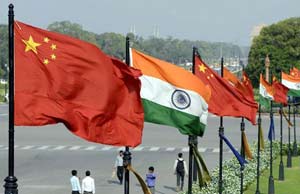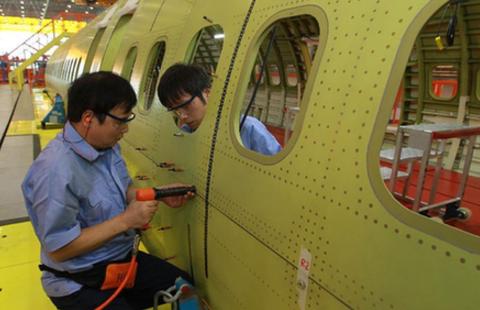Trade barriers hamper Sino-India ties
By INDRAJIT BASU (China Daily) Updated: 2014-09-22 07:17Protectionism is another thorny issue. China has initiated only four dumping cases against India, whereas India has filed 147 cases against China, of which 120 have ended with import bans.
"The problem with India is that while the government displays a positive attitude towards attracting Chinese investments, policies remain investment-unfriendly," says Girija Pande, executive chairman of Apex Avalon Consulting, a Singapore-based firm that says it advises "hundreds" of Chinese investors entering India.
Pan of Fosun says India's procedures for application and approval of foreign investments are complicated. Moreover, just a few sectors are open to FDI.
"India also has inconsistent taxation policies that need to be addressed, just like the issue ofvisas," Pan says. "While countries like the US and Canada issue visas extended from five to 10 years, in India, Chinese visitors get visas for just six months."
"The irony is that despite the challenges, bigger companies like Huawei, ZTE and Haier manage to work their way around. But the smaller Chinese investors bear the brunt (of India's chaotic FDI policies)," says Karackattu.
Many Chinese investors have not yet formulated a clear entry strategy.
"Many are confused about whether they want to enter India for the Indian market or to address the global market from India," says Pande of Apex Avalon.
Unlike Indian companies, private Chinese firms seeking to set up units in India lack experience in operating in newly emerging markets like India, he says, adding there is an urgent need to address that issue, perhaps through a helpdesk or a single-window clearance system.
"Chinese investment overseas is growing substantially. India has to be more receptive to them and lay out a red carpet. Besides, India is not yet linked to the manufacturing ecosystem and supply chains of Asia," Pande says.
India also needs to revive export manufacturing, for which it needs Chinese help, he says. And with the Chinese raising investments in India, the country can become a part of the supply chains of Asia. It is imperative for India to encourage Chinese firms to invest and manufacture, experts say.
"Even as India has successfully transitioned from primarily an agriculture-based economy to a service-based economy, it has skipped the manufacturing bus," says Karackattu of the China Studies Centre.
India recently crafted a national manufacturing policy, aiming to enhance the share of manufacturing in GDP to 25 percent within a decade, and create 100 million jobs.
To achieve this target, India needs participation from China, whose expertise in establishing a large-scale manufacturing base can play an important role in boosting the former's manufacturing sector, Karackattu says.
It has also become imperative to bridge the yawning trade deficit, which, according to the Reserve Bank of India, is a growing concern.
Bilateral trade rose from $2.7 billion in 2001, the year China joined the World Trade Organization, to $65.47 billion in 2013. But there has been a burgeoning deficit for India that shot up from $9 billion in 2006-07 to $31.4 billion at present.
"Fosun, for instance, can help India to address the trade imbalance by helping India export more goods and services to China," says Pan. The good news is, Chinese investors also feel India is an integral part of their global strategy.
"In our global expansion, India is no doubt one of the key strategic markets," says Tom Lu, CEO of OPPO Mobiles India.
"OPPO is a global brand, but since our first day in this country, we've been striving to be an integral part of the community and the society at large," Lu says. "It is a strategic market for us, primarily because there is clearly a huge potential to grow."
|
 |
 |
- Ultrasonic CEO resurfaces in China, denies taking money
- Country Garden lays ground for project in Beijing
- Alibaba issues additional shares to raise IPO total to $25b
- China's shadow banking shows signs of stabilizing
- Apple fans line up around the world for iPhone 6
- Opportunists cash in on delayed iPhone launch in China
- Scandal-tainted Shanghai Husi to fire 340 workers
- Avaya launches program targeting SMEs

















